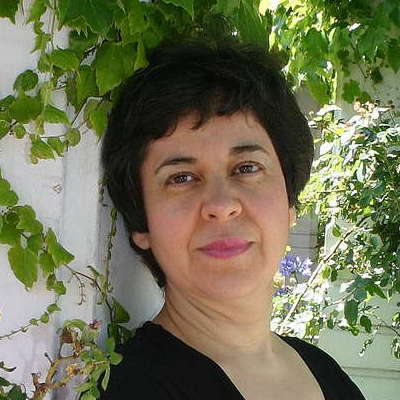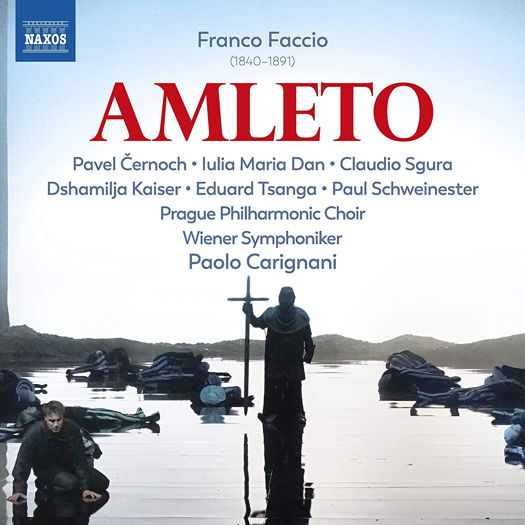- Donald Tovey
- solo piano
- Piers Adams
- Stradivarius Records
- James Bowman
- Christof Loy
- O2 Arena
- Swedish Radio Symphony Orchestra
 DISCUSSION: What is a work? John Dante Prevedini leads a discussion about The performing artist as co-creator, including contributions from Halida Dinova, Yekaterina Lebedeva, Béla Hartmann, David Arditti and Stephen Francis Vasta.
DISCUSSION: What is a work? John Dante Prevedini leads a discussion about The performing artist as co-creator, including contributions from Halida Dinova, Yekaterina Lebedeva, Béla Hartmann, David Arditti and Stephen Francis Vasta.
 SPONSORED: A Seasoned Champion of New Music. Argentinian-American pianist Mirian Conti in conversation with Andrew Schartmann.
SPONSORED: A Seasoned Champion of New Music. Argentinian-American pianist Mirian Conti in conversation with Andrew Schartmann.
All sponsored features >>

To Be or Not To Be
Franco Faccio's opera 'Amleto',
heard by GERALD FENECH
'A must for all opera lovers, particularly those interested in nineteenth century Italian repertoire.'
Arrigo Boito (1842-1918), Giuseppe Verdi (1813-1901) and Franco Faccio (1840-1891); what do they have in common? Indeed, they were all opera composers, but Boito was by profession a poet and librettist, and Faccio's main occupation was that of a conductor. When Otello was premiered on 7 February 1887 at La Scala, oddly enough all three came together, with Verdi composing the music, Boito the masterly libretto and Faccio conducting the performance.
Another common factor was their great love for Shakespeare, and way before Verdi and Boito ended their artistic straddles in 1881, the latter and Faccio had already embarked on an ambitious project, that of writing an opera about Hamlet. This was a first attempt by any composer to tackle such a subject, but Faccio, inspired by Boito's literary genius, rose to the occasion, and the work is undoubtedly one to admire and enjoy.
Sadly, after its rather sedate premiere in Genoa in 1865, the opera was restaged in 1871 at La Scala, but this production was a near disaster, due mainly to the tenor Mario Tiberini falling ill days before the scheduled performance. Such was the composer's disappointment that Faccio never wrote another note, and dedicated the remainder of his career solely to conducting. Hamlet was only revived in 2014 in America, in a concert version, before this 2016 Bregenz 'rebirth' established the work not only as a true gem of Italian melodrama but also gave the opera its first recording on all three media.
Faccio, who incidentally conducted the Italian premiere of 'Aida', and Boito, skilfully and with telling effect, challenged the conventions of Italian opera, which they wanted to revitalise by injecting it with the spirit of Shakespeare's drama. Anticipating the musical language of the later 'verismo' style, composer and librettist sought a greater degree of musical unity in staged productions and a more balanced relationship between text and music.
In a story that many considered not suitable for the operatic stage, they discovered the perfect medium through which to explore the work's philosophical and dramatic power, particularly in Hamlet's soliloquy 'To be or not to be', Ophelia's Mad Scene and the fight sequences.
Listen — Franco Faccio: Essere o non essere! (Amleto Act II Part I)
(CD1 track 10, 0:11-1:11) © 2019 Naxos Rights (Europe) Ltd :
The music is overflowing with drama and excitement, and there is a richness of melodic ideas that never ceases to surprise, both in the lovely musical interludes and the superb vocal writing.
Listen — Franco Faccio: Pazzia di Ofelia (Amleto Act III Part II)
(CD2 track 4, 12:33-13:31) © 2019 Naxos Rights (Europe) Ltd :
Singers, choir and orchestra play and sing their hearts out, and under Paolo Carignani's direction, the work carries terrific impetus. Indeed, despite the accumulating tension of the piece, the Maestro keeps things moving briskly yet precisely.
Listen — Franco Faccio: Illustri cortigiani e cavalieri (Amleto Act IV Part II)
(CD2 track 7, 9:37-10:31) © 2019 Naxos Rights (Europe) Ltd :
A must for all opera lovers, particularly those interested in nineteenth century Italian repertoire.
Copyright © 18 October 2019
Gerald Fenech,
Gzira, Malta

CD INFORMATION - FRANCO FACCIO: AMLETO


